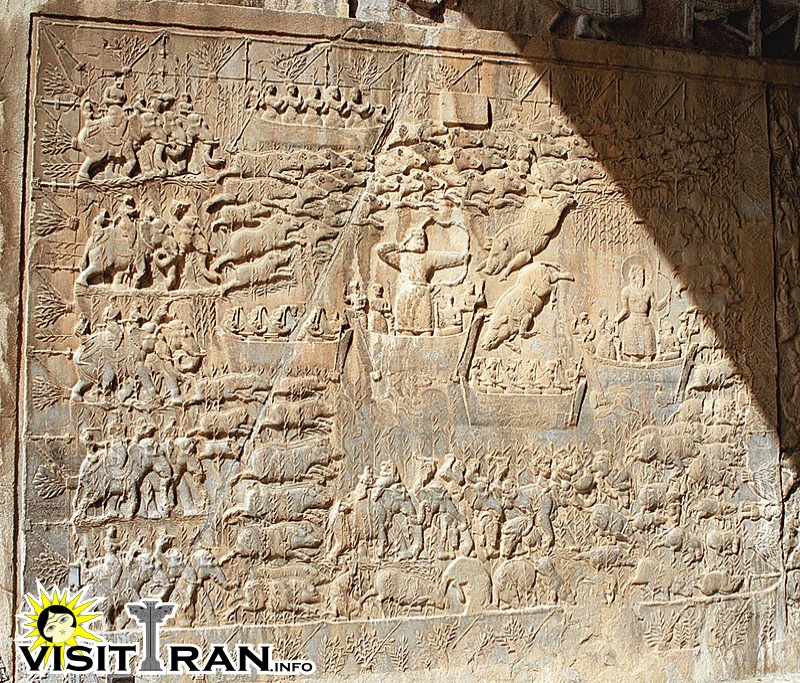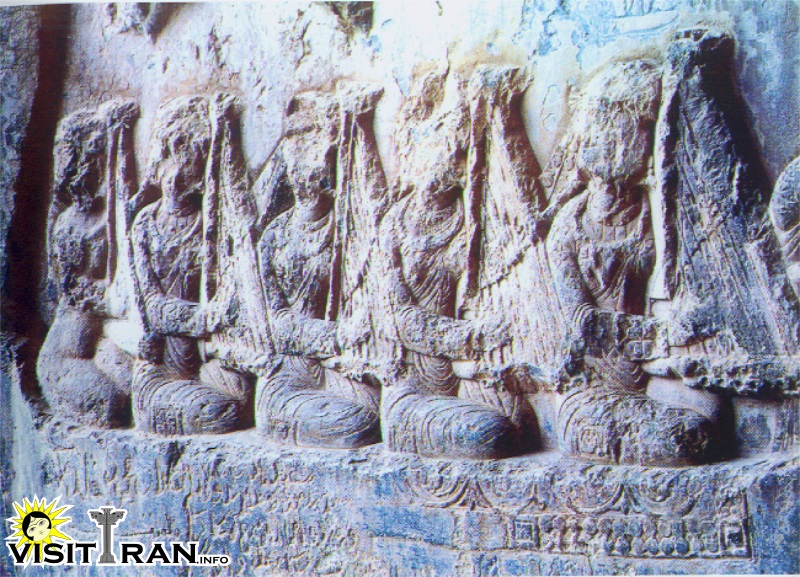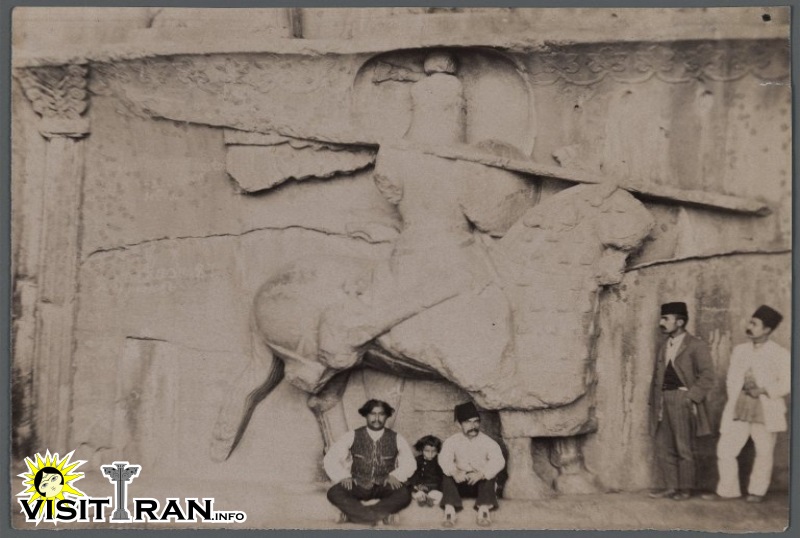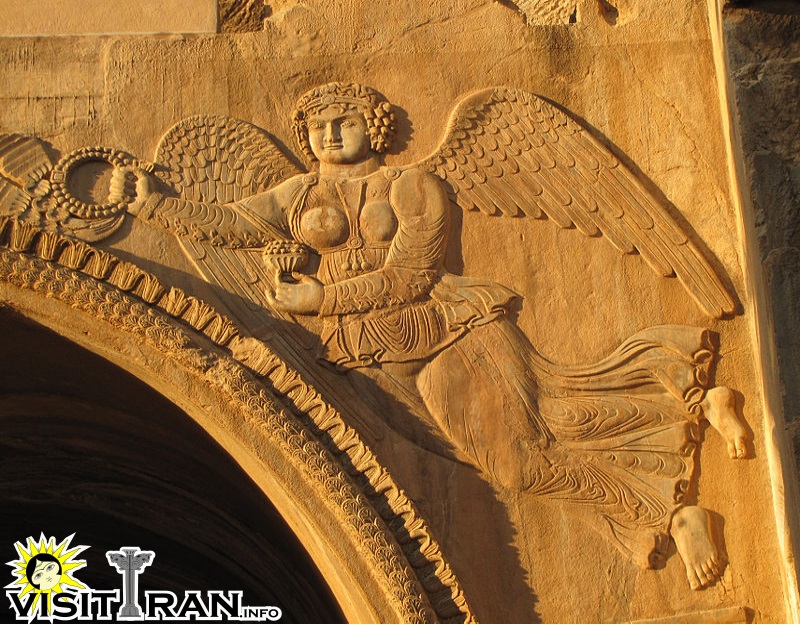Taghe Bostan – Kermanshah
In the heart of Zagros mountains range and in just 5 kilometers of the Kermanshah city center, is a series of petroglyphs and rock engravings called Tagh-e-Bostan which date back to almost 1,700 years ago. Tagh-e-Bostan (or Taq Bostan), was the chosen site by the Sassanid kings for their sculptures, as it was located on the path of silk road and due to its beautiful nature continuously attracted a lot of visitors since its establishment up to now. Before this, the site surrounding Persepolis was used by the empires before Sassanid to create such monuments and sculptures.
Tagh e Bostan depicts coronations of several Sassanid kings such as Khosrow Parviz (last great king of Sasanian Empire), Ardashir II, Shahpur II and Shahpur III. Furthermore there are several inscriptions in Pahlavi, which was the official script of lran during the Sassanid Empire.
The main ethnicity group in Kermanshah is Kurdish. And therefore the original (or the Kurdish) name of Tagh-e-Bostan is Tagh veh San which mean Arch of stone in Kurdish.
There are many different engravings in Tagh-e-Bostan and each depicts an important occasion which is of great historical importance. One that stands out is the engraving of “Khosrow Parviz hunting ground”, which is believed to be the first rock engraving based on principles of artistic drawings.
The hunting ground itself is also located in the same region.
There are many more artistic engravings which due to their style, are believed to be created based on drawings and portraits. One of these engravings shows boar hunting, which is believed to be a sign of bravery and courage. Another one is of women playing Chang (a musical instrument similar to harp).
The centerpiece of Tagh-e-Bostan is the main arch that shows Khosrow Parviz on his favorite and well-known horse called Shabdiz.
Above it the coronation of Khosrow Parviz is depicted; the king stands in the middle, Fravashi (the holy spirit in every living creature in Zoroastrian believe) on his right and is giving him the ring of monarchy (believed to be the symbol of a legitimate kingdom). And on his left, stands Anahita, who is the goddess of waters and represent flourishing nature.
Another famous coronation depicted in Taghe Bostan is of Ardeshir the Second.
Tagh-e-Bostan has withstand 1,700 years of rain, sunlight and wind. However due to earthquakes, cracks have shown up on the engravings which caused penetration of rainwater and further damages. But the greatest damage of all was caused by one of the kings of Qajar dynasty, Mohammad Ali Shah, who ordered his own depiction to be engraved on the site during the 19th century. The engraving is considered unprofessional and egoistic, even by the succeeding kings of Qajar.
Map:














 D5 Creation
D5 Creation